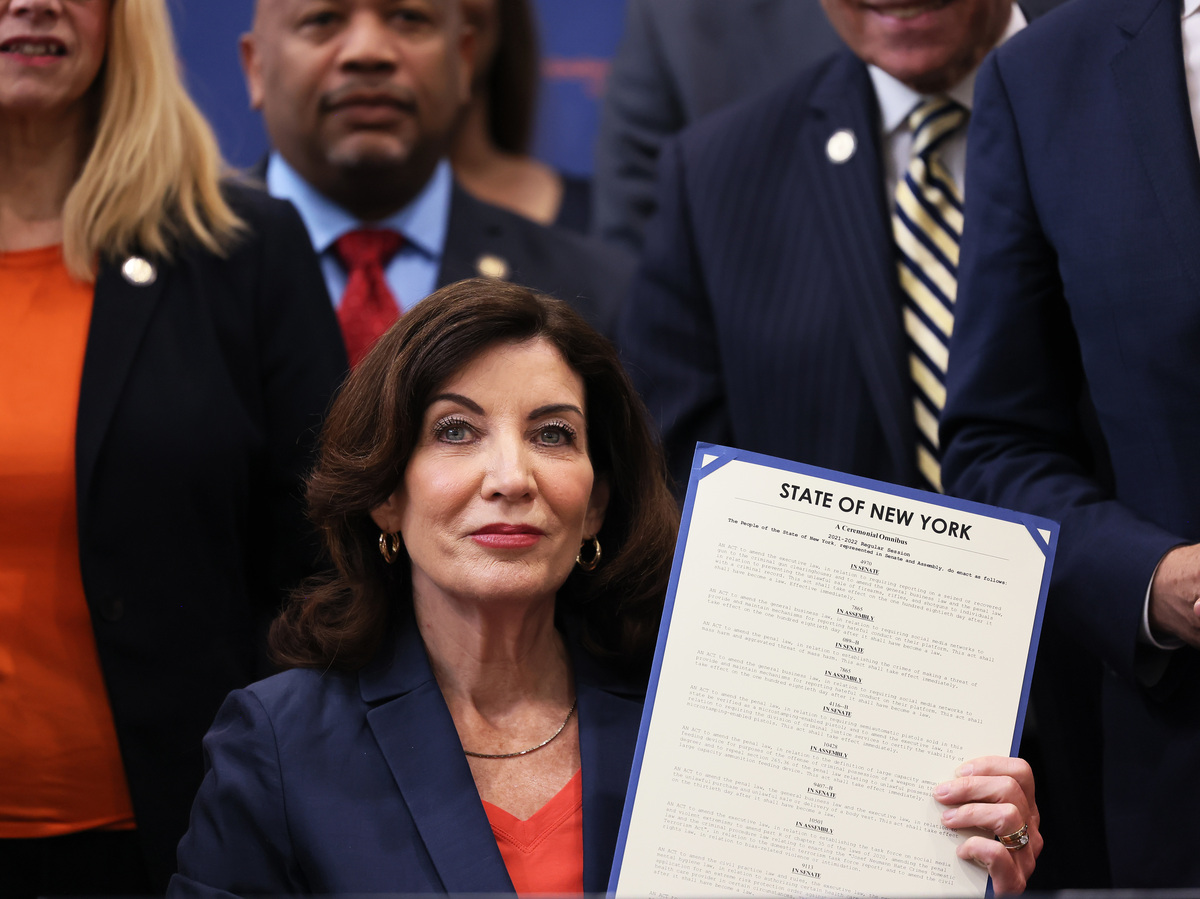
[ad_1]

New York Gov. Kathy Hochul announced that she is pledging $10 million to establish new teams in every county and in New York City dedicated primarily to combat domestic terrorism. Here, Hochul holds up signed legislation as she is surrounded by lawmakers during a bill signing ceremony at the Northeast Bronx YMCA on June 6, 2022 in New York City.
Michael M. Santiago/Getty Images
hide caption
toggle caption
Michael M. Santiago/Getty Images

New York Gov. Kathy Hochul announced that she is pledging $10 million to establish new teams in every county and in New York City dedicated primarily to combat domestic terrorism. Here, Hochul holds up signed legislation as she is surrounded by lawmakers during a bill signing ceremony at the Northeast Bronx YMCA on June 6, 2022 in New York City.
Michael M. Santiago/Getty Images
In the fight to curb domestic terrorism on the local level, New York Gov. Kathy Hochul announced new guidance Tuesday to support the development of domestic terrorism prevention plans following the deadly mass shooting in Buffalo.
Hochul pledged $10 million to assist counties across New York in the development of threat assessment management teams.
This is a step in the right direction but more must be done, Javed Ali, associate professor at the University of Michigan’s Gerald R. Ford School of Public Policy, told NPR.
“The more states like New York that develop their own plans to address domestic terrorism, the better,” Ali said. “It will provide a quilt-work of different activities in the short-term that will allow some of the more longer-term aspects of the Biden administration’s national strategy to take root.”
We’re taking aggressive action to identify and confront threats of domestic terrorism in New York. Join me as I deliver remarks at @NYSDHSES Threat Assessment and Management Summit: https://t.co/32mPi2ZMUj
— Governor Kathy Hochul (@GovKathyHochul) August 9, 2022
The teams, according to Hochul, will be compromised of law enforcement and mental health professionals, school officials and other important stakeholders tasked with identifying, evaluating and reducing domestic terrorism.
“In the wake of the horrific domestic terror attack in my hometown of Buffalo, I committed to New Yorkers that we will confront the scourge of domestic terror head-on,” Hochul said in a statement.
Each county’s plan must include input from local law enforcement, mental health and school professionals and others before being submitted to the Division of Homeland Security and Emergency Services’ Office of Counterterrorism by Dec. 31, according to Hochul.
The Buffalo gunman, 19-year-old Payton Gendron, is currently facing 27 counts following the deadly attack at the Tops supermarket.
If convicted on all 27 counts, Gendron could face either the death penalty or a maximum sentence of life in prison without parole.
The attorney general will decide at a later date on whether to seek the death penalty, according to the U.S. Justice Department.
[ad_2]
Source link
